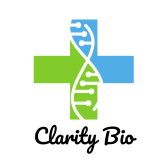To develop a successful bioprocess, it is essential we determine the optimal growth conditions so that the cells in the cultured media achieve the highest product quantity and quality. We take the metabolomics approach to tune the metabolic pathway and supplemented media to ensure a better cell growth environment. Furthermore, bioprocess modeling using our advanced computational techniques can provide useful insights for optimising the process parameters.
Biologics and API process development
We develop bioprocesses by improving the titre and yield of the recombinant therapeutic proteins and producing API using fermentation. We have experience working with diverse biological entities like Monoclonal Antibodies, Antibody Fragments, Glycoproteins, Pegylated Proteins, Subunit Protein Vaccines, mRNA, microbial (E. coli and Pichia), enzymes, and more.
Our Development Services are available as both stand-alone services as well as true extensions of the Bio-pharma R&D team. We also offer customized solutions appropriate to client R&D programs. Our scientists have cross-functional, multi-disciplinary expertise in implementing integrated programs. We have a consistent track record of managing and executing projects of diverse complexities for a global clientele.
Yield management for proteins and enzymes using Metabolomics
Although animal cells are widely used as hosts for recombinant protein production, still only little is known regarding the interaction of metabolic alterations and protein production and processing.
Therefore, a more sophisticated look into cellular metabolism will lead to more efficient use of the production medium resulting in high quantities of the protein with the desired product quality.
For intracellular metabolite quantification, the sample preparation including the quenching of cells is a very critical step strongly affecting subsequent results. Our team has expertise in optimizing end to end (flask to reactor) processes for maximizing yield and help further downstream separation processes.




